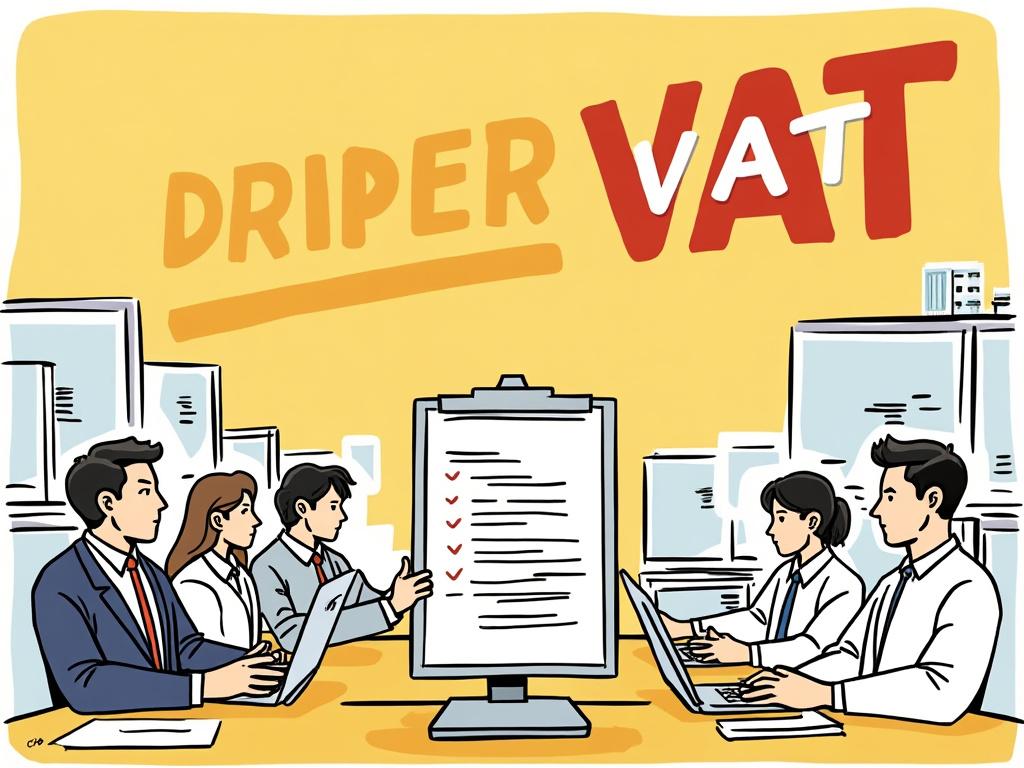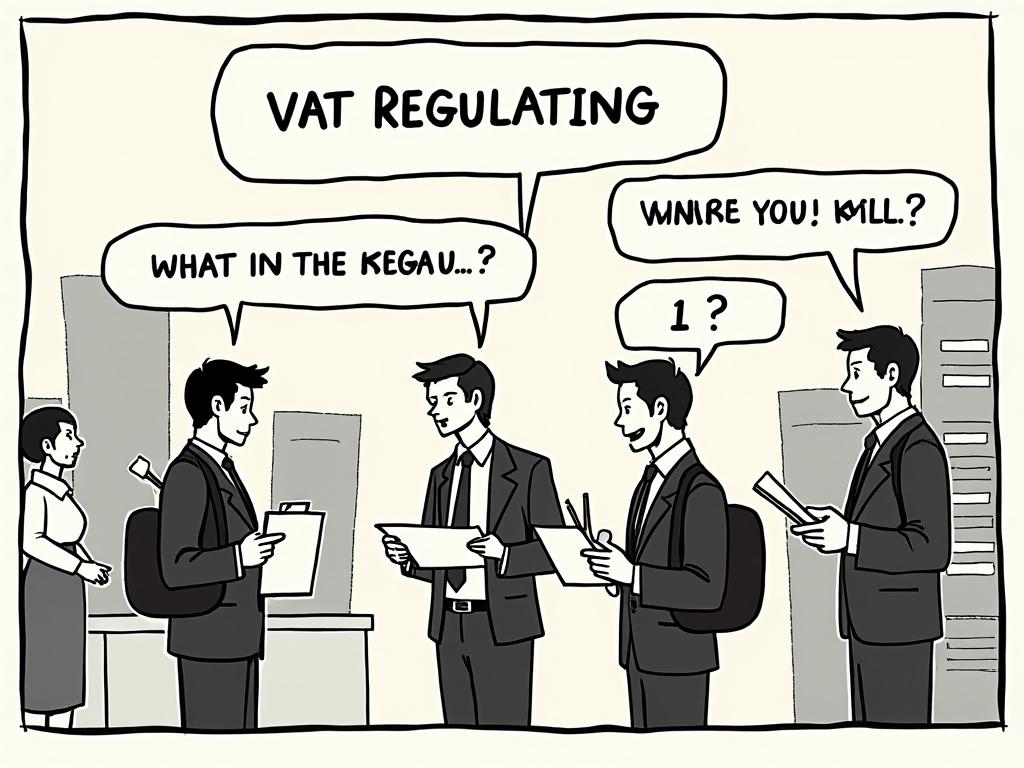
Value Added Tax (VAT) Rates and Regulations in Greece: What’s Changing in 2025
**Reading time: 12 minutes**
Table of Contents
- Current VAT Landscape in Greece
- Major VAT Changes Coming in 2025
- Impact on Different Business Sectors
- Strategic Compliance Approaches
- Implementation Roadmap
- Future-Proofing Your VAT Strategy
- Frequently Asked Questions
Ever found yourself scratching your head over Greek VAT regulations? You’re definitely not alone. As we approach 2025, Greece is implementing significant changes to its Value Added Tax framework that will reshape how businesses operate across the country. Whether you’re managing a boutique hotel in Santorini, running a tech startup in Athens, or considering investing in houses for sale in athens, understanding these VAT modifications isn’t just helpful—it’s essential for your financial success.
Here’s the straight talk: The 2025 VAT changes aren’t just bureaucratic adjustments—they’re strategic opportunities to optimize your tax position while ensuring full compliance with Greek tax authorities.
Current VAT Landscape in Greece
Greece operates under a multi-tiered VAT system that aligns with EU directives while addressing specific national economic priorities. As of 2024, the standard VAT rate stands at **24%**, one of the highest in the European Union, reflecting the country’s ongoing fiscal consolidation efforts.
Understanding the Current Rate Structure
The existing VAT framework includes three primary rates:
– **Standard Rate (24%)**: Applied to most goods and services
– **Reduced Rate (13%)**: Covers specific categories like food, pharmaceuticals, and hotel accommodations
– **Super-Reduced Rate (6%)**: Limited to essential items such as books, newspapers, and certain medical supplies
**Quick Scenario**: Imagine you’re running a restaurant in Thessaloniki. Your food ingredients are taxed at 13%, but your wine selection faces the full 24% rate. This rate differentiation significantly impacts your pricing strategy and profit margins.
Island VAT Advantages
Greek islands enjoy preferential VAT treatment, with rates reduced by approximately 30% across all categories. This system, designed to support island economies, creates unique opportunities for businesses operating in these regions.
| VAT Category | Mainland Rate | Island Rate | Difference |
| Standard Rate | 24% | 17% | -7% |
| Reduced Rate | 13% | 9% | -4% |
| Super-Reduced Rate | 6% | 4% | -2% |
| Accommodation Services | 13% | 9% | -4% |
Major VAT Changes Coming in 2025
The Greek government has announced several pivotal VAT modifications for 2025, primarily driven by EU harmonization requirements and domestic economic recovery strategies.
Digital Services VAT Revolution
Starting January 2025, Greece will implement enhanced VAT collection mechanisms for digital services, aligning with the EU’s Digital Services Act. This change particularly affects:
– **E-commerce platforms** operating cross-border transactions
– **Digital content providers** including streaming services and online publications
– **Software-as-a-Service (SaaS)** companies serving Greek customers
The new framework introduces a **reverse charge mechanism** for B2B digital transactions, shifting VAT liability from service providers to recipients in specific circumstances.
Real Estate Transaction Updates
Property transactions will see modified VAT application rules, particularly affecting new constructions and commercial real estate. The changes include:
– Simplified VAT registration for property developers
– Enhanced input VAT recovery mechanisms for construction materials
– Modified timing rules for VAT payment on property transfers
**Pro Tip**: If you’re considering property investment or development, these changes could significantly impact your project economics. The enhanced input VAT recovery alone could improve cash flow by 15-20% for qualifying projects.
Hospitality Sector Adjustments
The tourism and hospitality sector faces targeted VAT modifications designed to boost competitiveness:
– **Standardized 9% rate** for accommodation services across all Greek territories (eliminating mainland-island disparities)
– **Enhanced VAT refund procedures** for tourist purchases
– **Simplified reporting requirements** for seasonal businesses
VAT Rate Changes Impact Visualization
High Impact (60%)
Medium Impact (45%)
Moderate Impact (35%)
Low Impact (25%)
Impact on Different Business Sectors
Technology and Digital Services
Tech companies operating in Greece face the most significant regulatory shifts. The new digital VAT framework requires enhanced compliance infrastructure, potentially increasing administrative costs by 10-15% initially. However, companies implementing robust VAT management systems early will gain competitive advantages through streamlined operations.
**Case Study**: A Athens-based fintech startup serving clients across Europe invested €50,000 in VAT compliance automation tools ahead of the 2025 changes. The investment reduced their VAT processing time by 70% and eliminated compliance risks worth potentially hundreds of thousands in penalties.
Construction and Real Estate
The construction sector benefits significantly from enhanced input VAT recovery mechanisms. Developers can now reclaim VAT on construction materials more efficiently, improving project cash flow. This change particularly benefits large-scale developments and infrastructure projects.
Retail and E-commerce
Retail businesses face mixed impacts. While domestic transactions remain largely unchanged, cross-border e-commerce requires enhanced VAT collection and reporting procedures. Businesses selling to EU customers must implement MOSS (Mini One-Stop Shop) reporting or equivalent systems.
Strategic Compliance Approaches
Successfully navigating the 2025 VAT changes requires proactive strategic planning rather than reactive compliance measures.
Technology-First Approach
Implementing robust VAT management software isn’t just about compliance—it’s about operational efficiency. Modern VAT solutions offer:
– **Automated rate calculations** across different jurisdictions
– **Real-time compliance monitoring** with regulatory updates
– **Integrated reporting systems** reducing manual processing time
Professional Advisory Networks
Establishing relationships with specialized Greek tax advisors provides crucial advantages. Local expertise helps navigate complex regulatory interpretations and optimize VAT strategies within legal frameworks.
**Practical Roadmap**:
1. **Assessment Phase** (Q4 2024): Evaluate current VAT processes and identify compliance gaps
2. **System Implementation** (Q1 2025): Deploy enhanced VAT management tools
3. **Training and Integration** (Q2 2025): Ensure team readiness for new procedures
4. **Optimization Review** (Q3 2025): Assess performance and refine strategies
Common Challenges and Solutions
**Challenge 1**: Complex cross-border transaction reporting
**Solution**: Implement automated MOSS reporting systems with built-in validation checks
**Challenge 2**: Managing multiple VAT rates across product categories
**Solution**: Deploy product classification databases with automated rate assignment
**Challenge 3**: Ensuring timely compliance with changing regulations
**Solution**: Establish quarterly compliance reviews with specialized advisors
Implementation Roadmap
Immediate Action Items (Q4 2024)
– **Audit current VAT processes** and identify areas requiring updates
– **Research technology solutions** that support 2025 regulatory requirements
– **Establish advisory relationships** with Greek tax professionals
– **Review customer contracts** for VAT clause implications
Early 2025 Priorities
– **Deploy updated VAT management systems** before regulatory deadlines
– **Train finance teams** on new procedures and requirements
– **Establish monitoring protocols** for ongoing compliance verification
– **Create documentation frameworks** for audit readiness
Mid-Year Optimization
– **Assess system performance** and identify improvement opportunities
– **Review VAT recovery strategies** for maximum financial benefit
– **Analyze competitor approaches** for strategic insights
– **Plan for potential future regulatory changes**
Future-Proofing Your VAT Strategy
The 2025 VAT changes represent just one phase in Greece’s ongoing tax modernization journey. Smart businesses prepare not just for immediate changes, but for the evolving regulatory landscape ahead.
**Looking Forward**: EU harmonization efforts suggest continued emphasis on digital transaction transparency and cross-border compliance standardization. Businesses investing in scalable, adaptable VAT management infrastructure position themselves advantageously for future regulatory evolution.
The integration of artificial intelligence and machine learning in tax compliance systems will likely accelerate, offering sophisticated risk management and optimization capabilities. Companies embracing these technologies early gain sustained competitive advantages.
**Key Insight**: According to recent European Commission data, businesses implementing comprehensive VAT automation reduce compliance costs by an average of 30% while improving accuracy by over 85%. These improvements compound over time, creating significant long-term value.
Frequently Asked Questions
How will the 2025 VAT changes affect small businesses with annual turnover under €100,000?
Small businesses benefit from simplified compliance procedures under the new framework. While they must still register for VAT if they exceed the €24,000 threshold, the enhanced digital reporting tools and streamlined processes reduce administrative burden. Many small businesses will actually experience easier VAT management through improved online platforms and automated calculation tools.
Do the island VAT advantages remain in place after 2025?
Yes, the island VAT preferential rates continue under the new framework, though with some modifications. The hospitality sector sees standardized rates across all territories, but other sectors maintain the traditional 30% reduction. This ensures continued support for island economies while simplifying certain business operations.
What penalties apply for non-compliance with the new VAT regulations?
Non-compliance penalties range from 10% to 50% of unpaid VAT amounts, depending on the violation severity and duration. Late filing incurs minimum penalties of €100 for small businesses and €500 for larger enterprises. However, the Greek tax authorities offer voluntary disclosure programs with reduced penalties for businesses proactively addressing compliance issues before audit discovery.
Strategic Next Steps: Your 2025 VAT Success Blueprint
The 2025 VAT landscape isn’t just changing—it’s creating unprecedented opportunities for strategically-minded businesses. Rather than viewing these modifications as compliance burdens, successful entrepreneurs recognize them as competitive differentiators.
**Your immediate action plan**:
• **Conduct a comprehensive VAT audit** by December 2024 to identify optimization opportunities
• **Invest in scalable technology solutions** that handle current changes while preparing for future evolution
• **Establish strategic advisory relationships** with Greek tax specialists who understand both local nuances and EU-wide implications
• **Create internal training programs** ensuring your team masters new procedures before competitors
• **Develop monitoring systems** that track regulatory changes and their business impacts proactively
The businesses thriving in 2025 won’t be those that simply comply with new regulations—they’ll be those that leverage these changes to streamline operations, reduce costs, and gain market advantages. As Greece continues its economic modernization journey, VAT optimization becomes not just about tax efficiency, but about positioning your business for sustained growth in an increasingly connected European marketplace.
**Here’s the critical question**: Will you approach these VAT changes as obstacles to overcome, or as strategic tools to outmaneuver less prepared competitors? The choice you make today determines your market position tomorrow.

Article reviewed by Charlotte Ellsworth, Commercial Real Estate Developer | Transforming Urban Landscapes, on June 6, 2025


